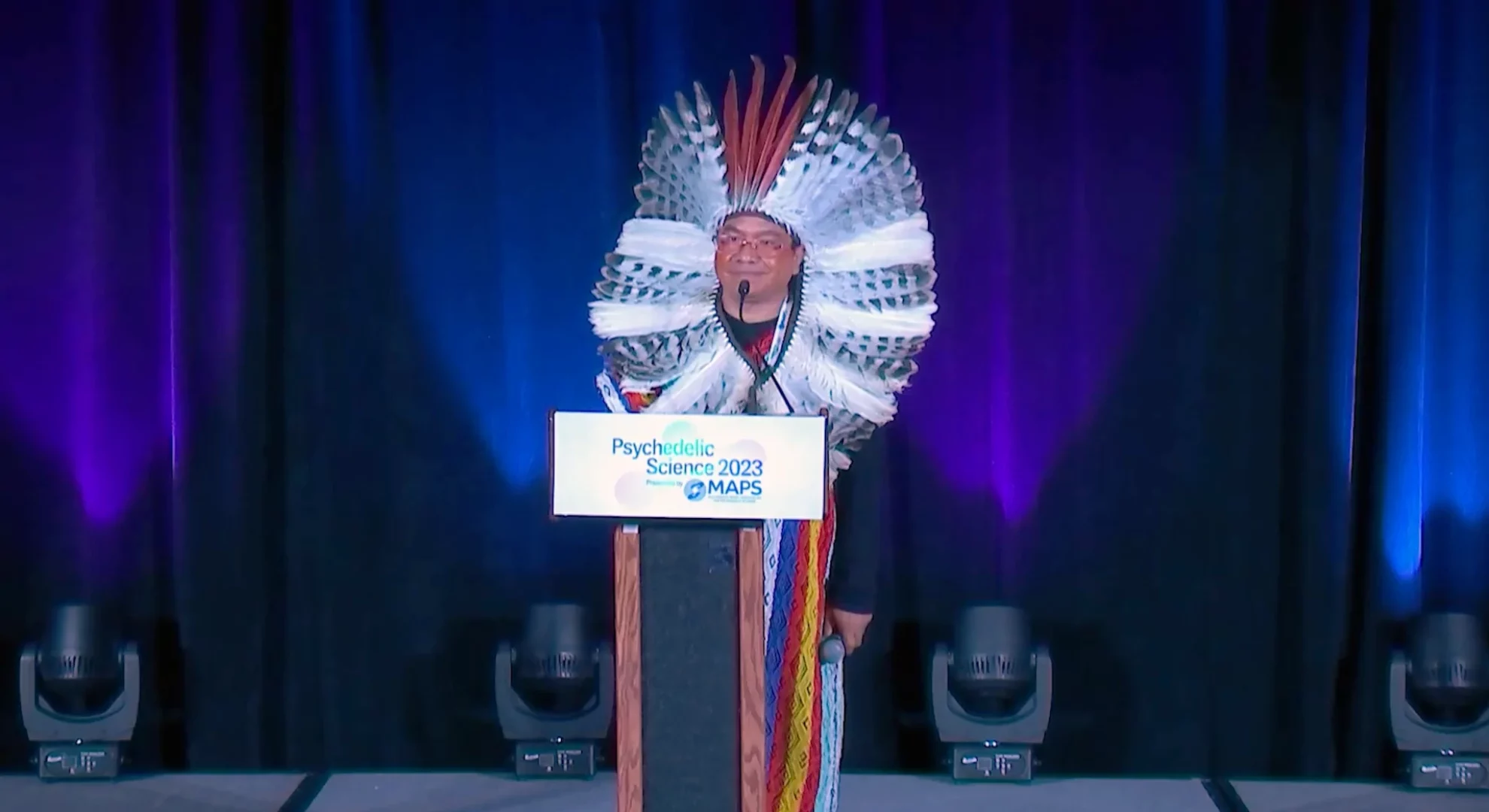
A Huni Kuin perspective on the Globalization of Ayahuasca
I am a representative of the Huni Kuin Indigenous people in the state of Acre. Traditional Brazilian communities have been using ayahuasca (Nixi Pae) as a medicinal plant for thousands of years. Since the creation myths, my people have been using ayahuasca that was received by the creator, Yuxibu. Today, the Huni Kuin continue to hold ceremonies with the sacred. Ayahuasca for my people brings an opening of knowledge, wisdom, and spirituality in our tradition and culture. Ayahuasca brings our consciousness, our awakening about the forest, about the world of cosmology, geometry, and of the Kene and Boa. This path we follow was taught by our grandfathers. The nature of Indigenous peoples is linked to mother earth, the forest, the animals, the creation between heaven and earth, the spirits and spirit world, and to the whole cosmology. Indigenous peoples were the first to use ayahuasca for spiritual purposes, for healing and connections to the forest and nature. However, it has been expanding outside of their villages. Among Indigenous and non-Indigenous people, there has been increasing interest in the culture, customs, and use of ayahuasca. More Indigenous people are traveling around the world, especially in Europe, where they teach about their culture, perform shamanic practices, and expand the use of ayahuasca to the West. A lot of shamanic groups, healers, and shamans have also appeared expanding this use of ayahuasca in the metropolis of big cities. There have been non-Indigenous people going to the villages and bringing Indigenous knowledge to cities in the form of shamanism or holistic and alternative therapies. I myself have been traveling the world for several years and feel privileged by the experiences I have had, which until recently would have been impossible. While expansion of ayahuasca and Indigenous culture is something that I support, there are still many concerns. My main worry is that my people and our culture will be forgotten as more Westerners are introduced to ayahuasca in foreign contexts, and that its original meaning and guardians may be lost. I believe that the problem with ayahuasca is a human rights issue. As an Indigenous representative from the Amazon forest, I want to present my views on the ongoing globalization of ayahuasca and how we might move forward together on this issue. This is all especially relevant after Bolsonaro’s administration which negatively impacted Indigenous peoples, reaffirming a colonial mindset that sees the Amazon forest as a resource to be explored. Indigenous peoples are aware and want a say in the politics of reform. In the case of ayahuasca, this is the main agenda in the discussion of the current drug policy reform.
Share: A Huni Kuin perspective on the Globalization of Ayahuasca
Facebook
Twitter
LinkedIn
Email




